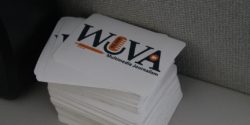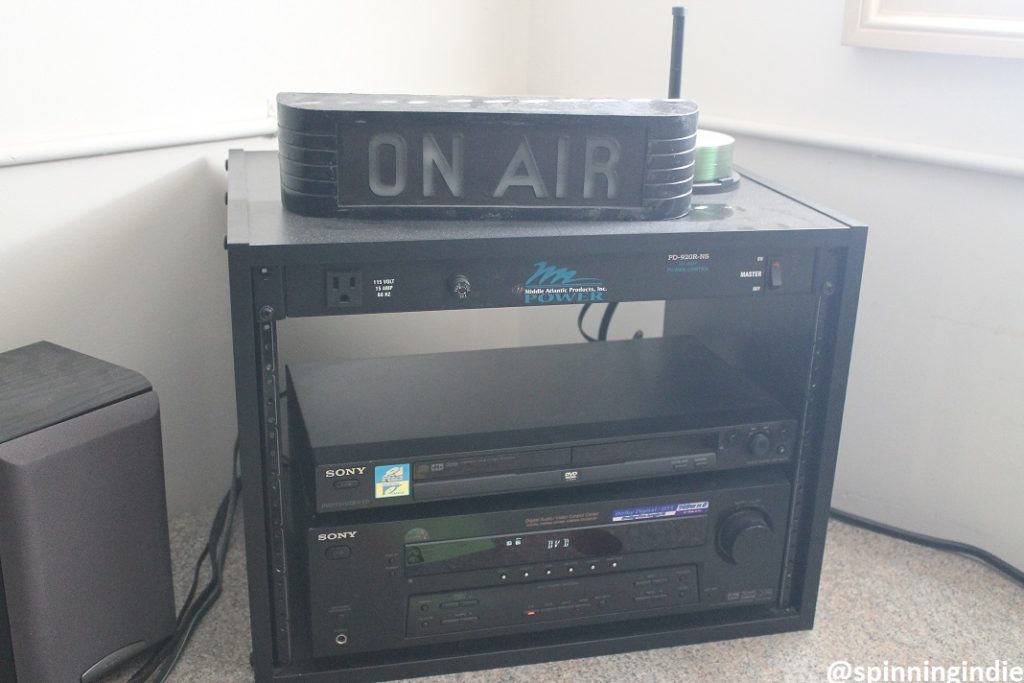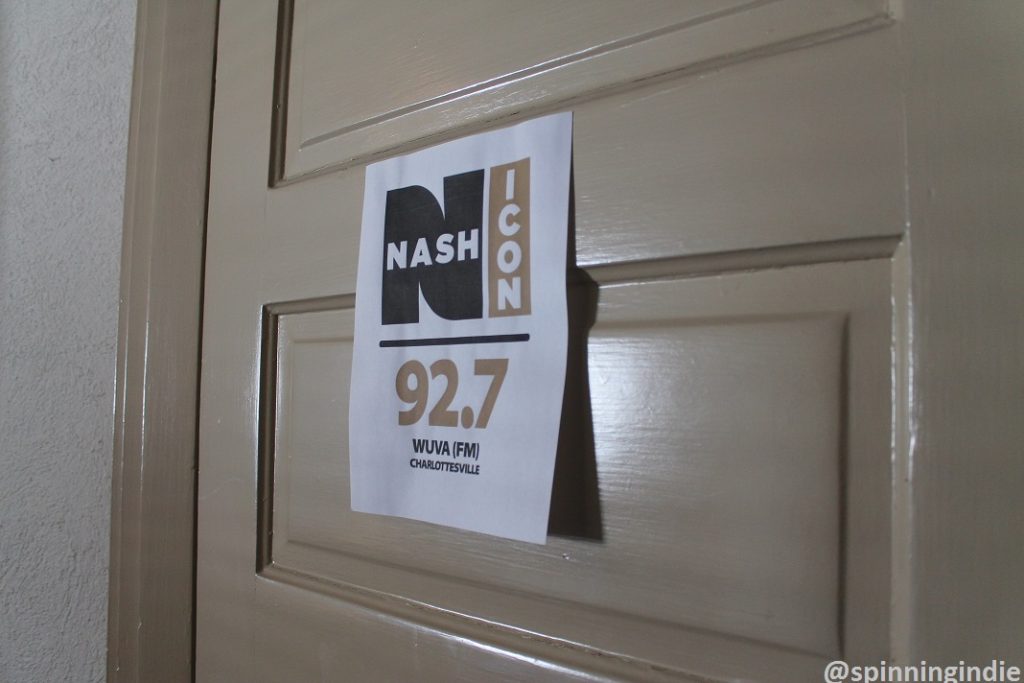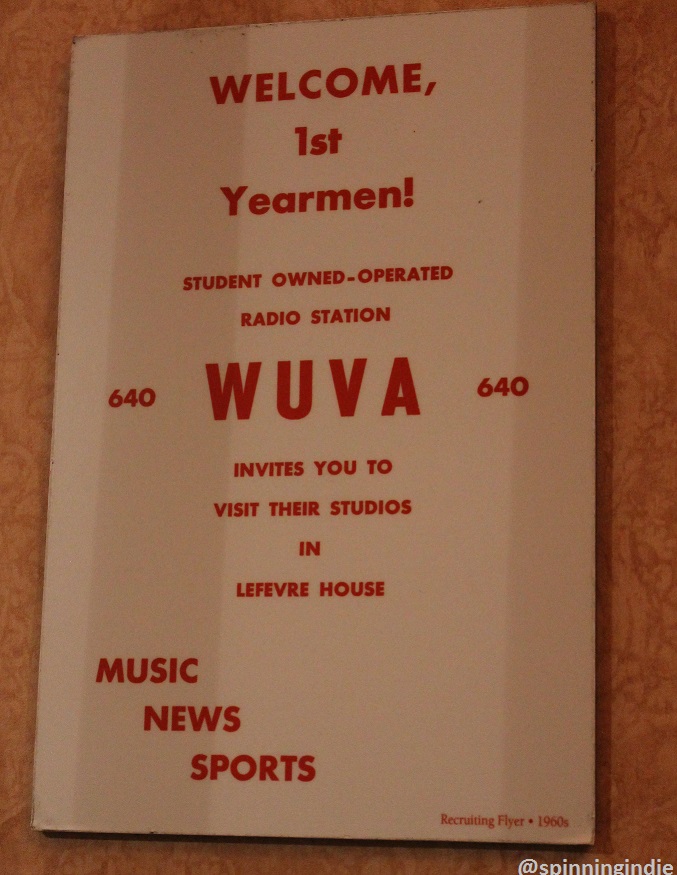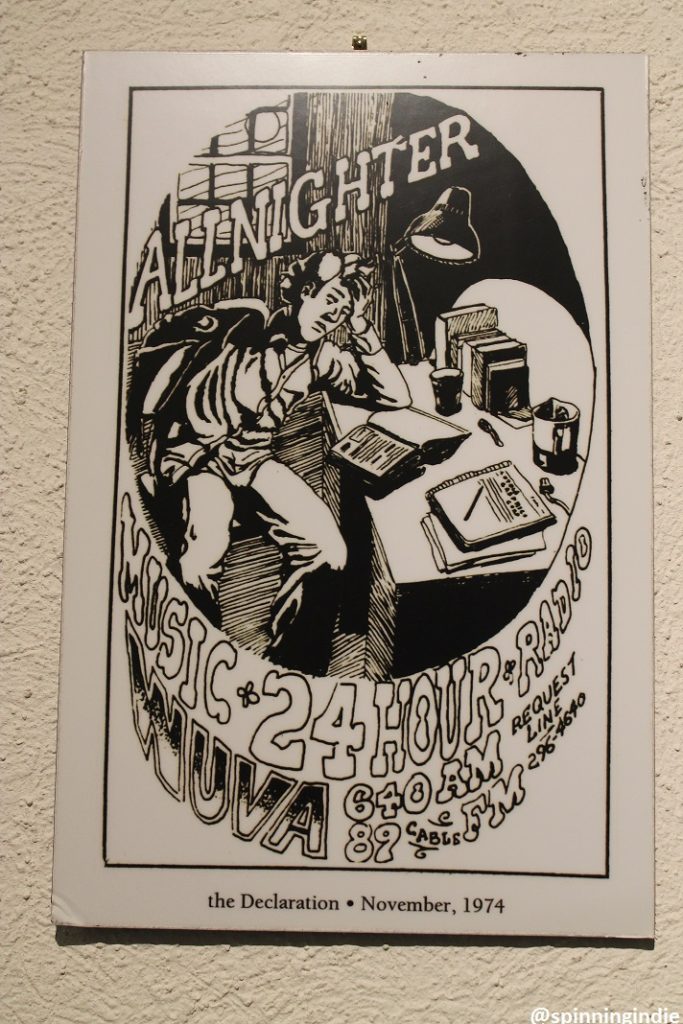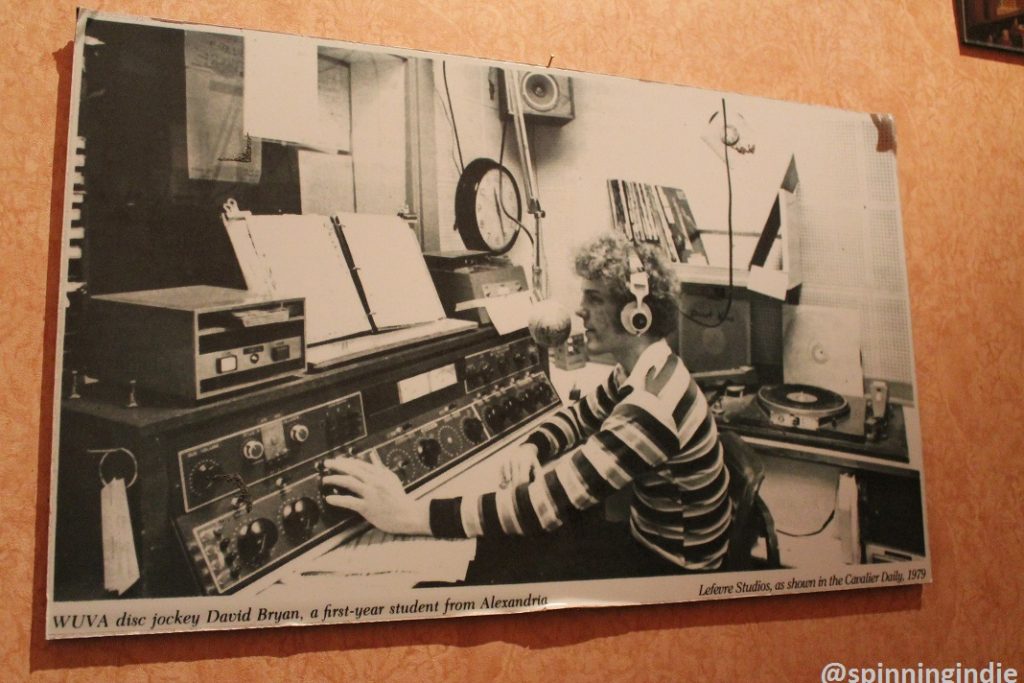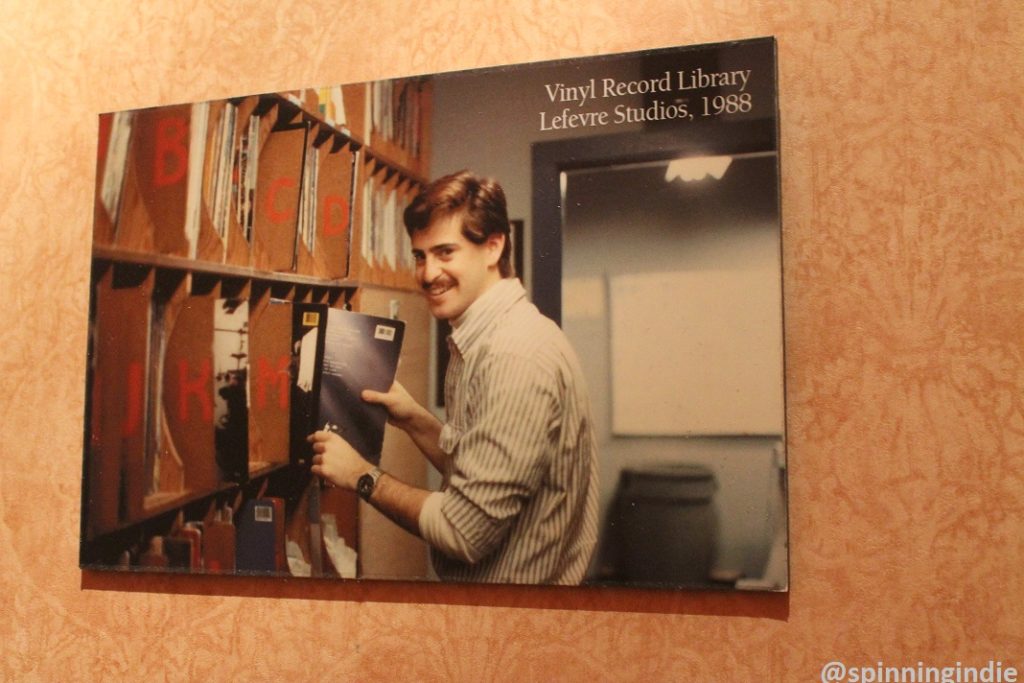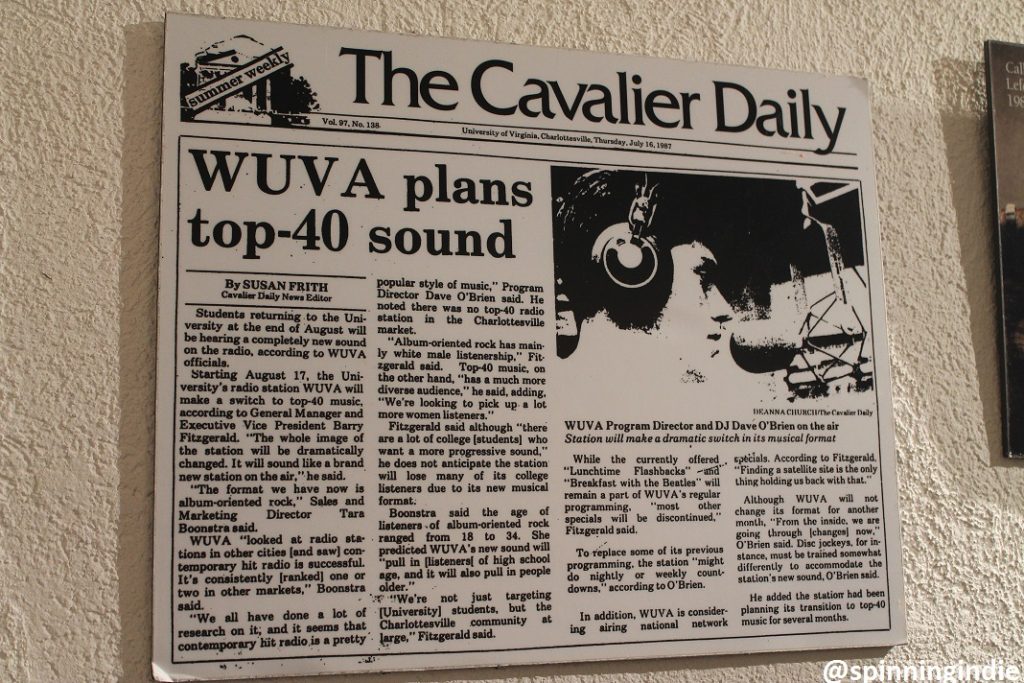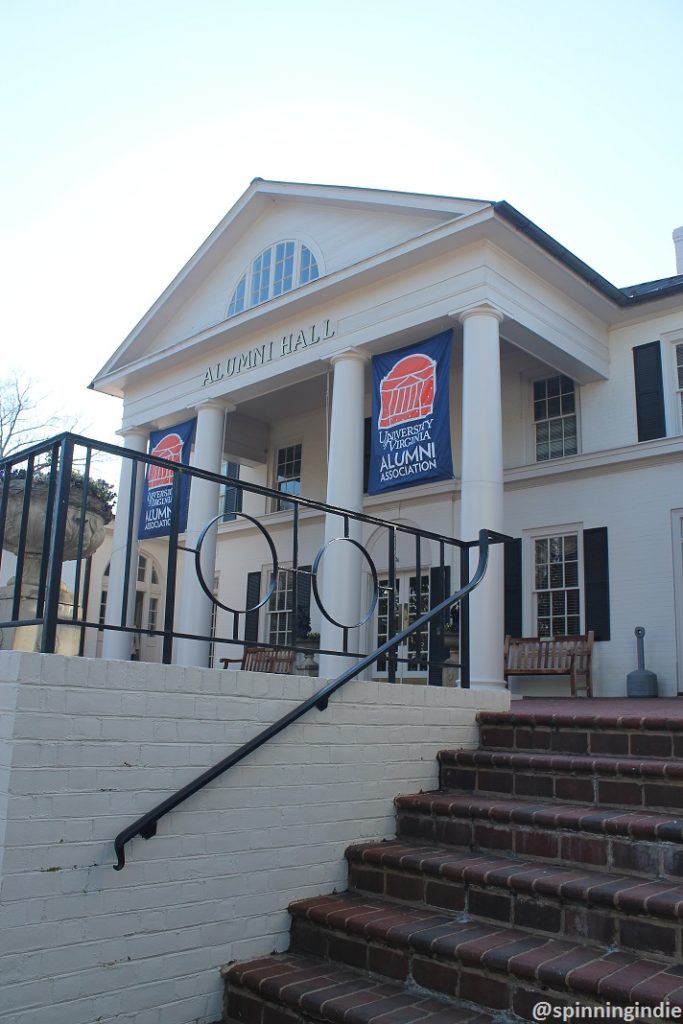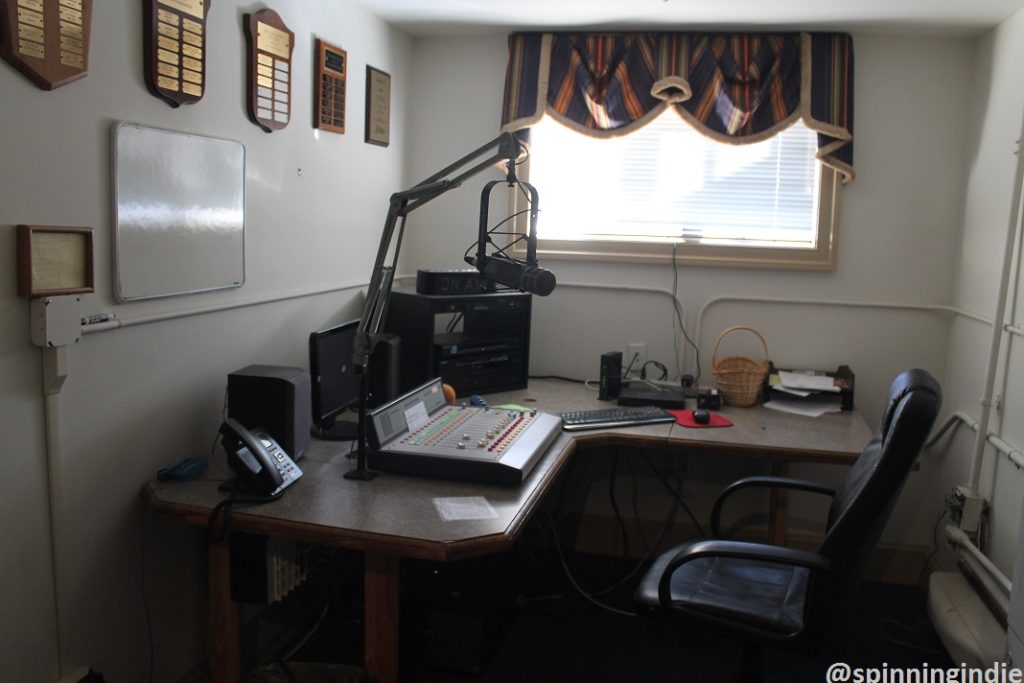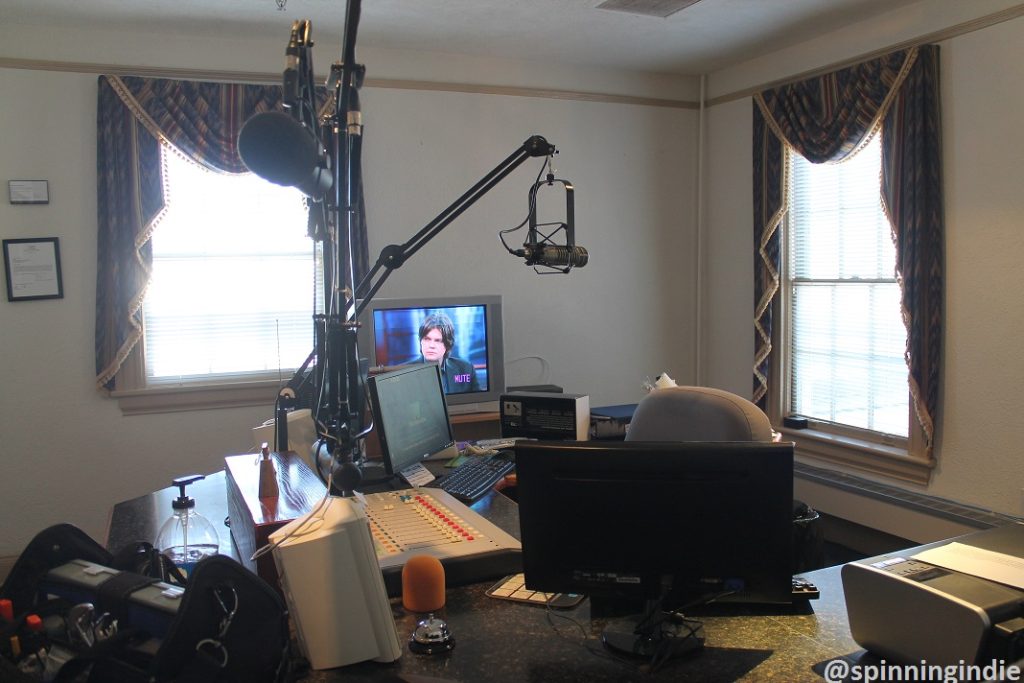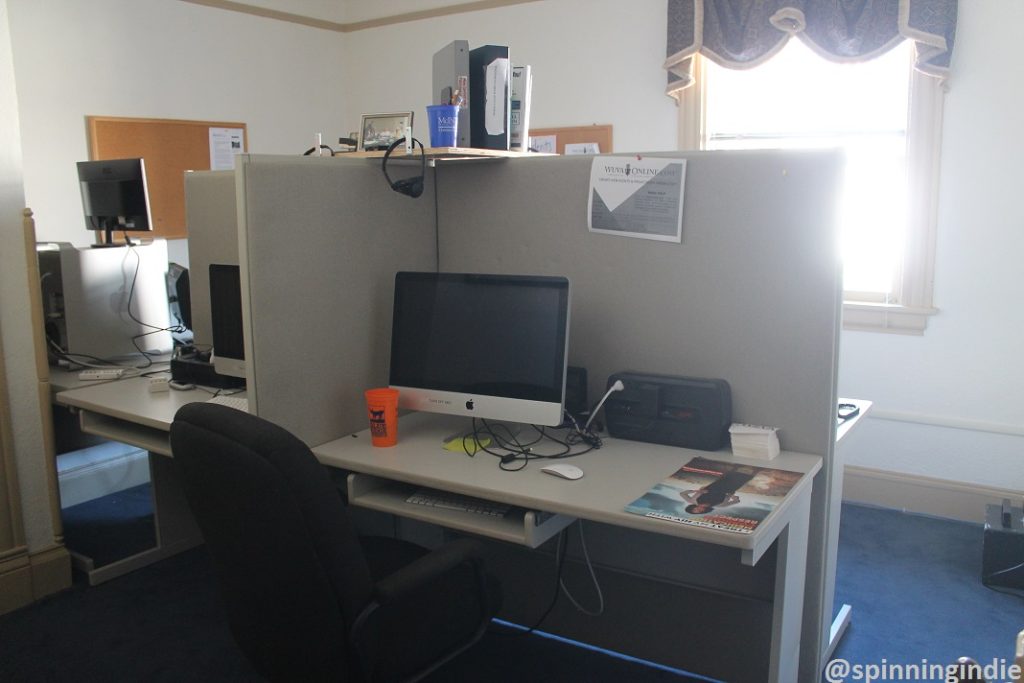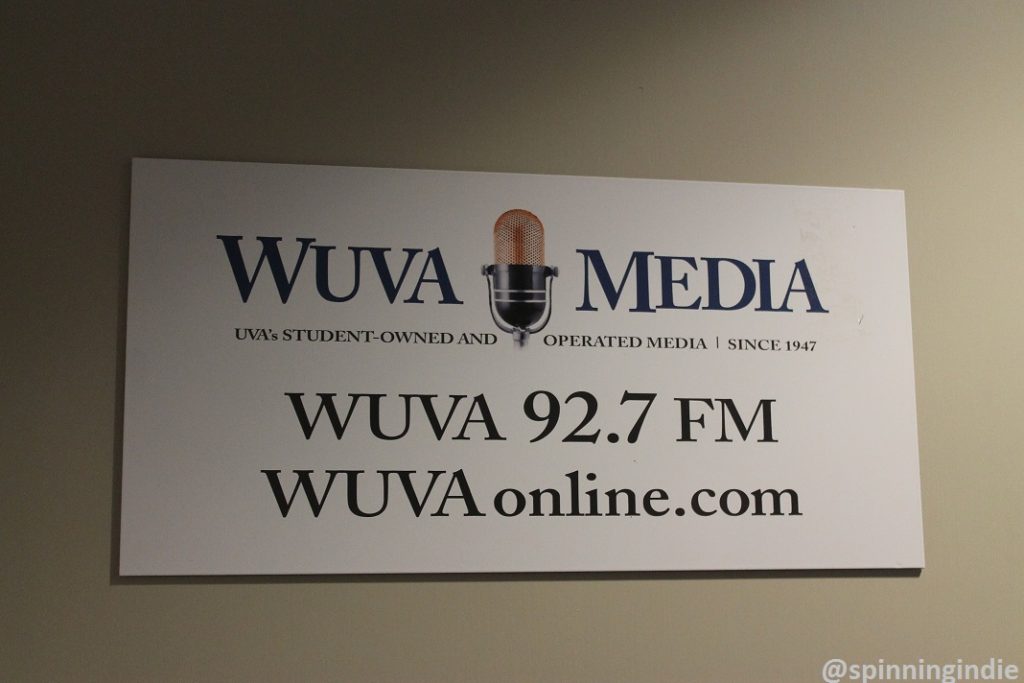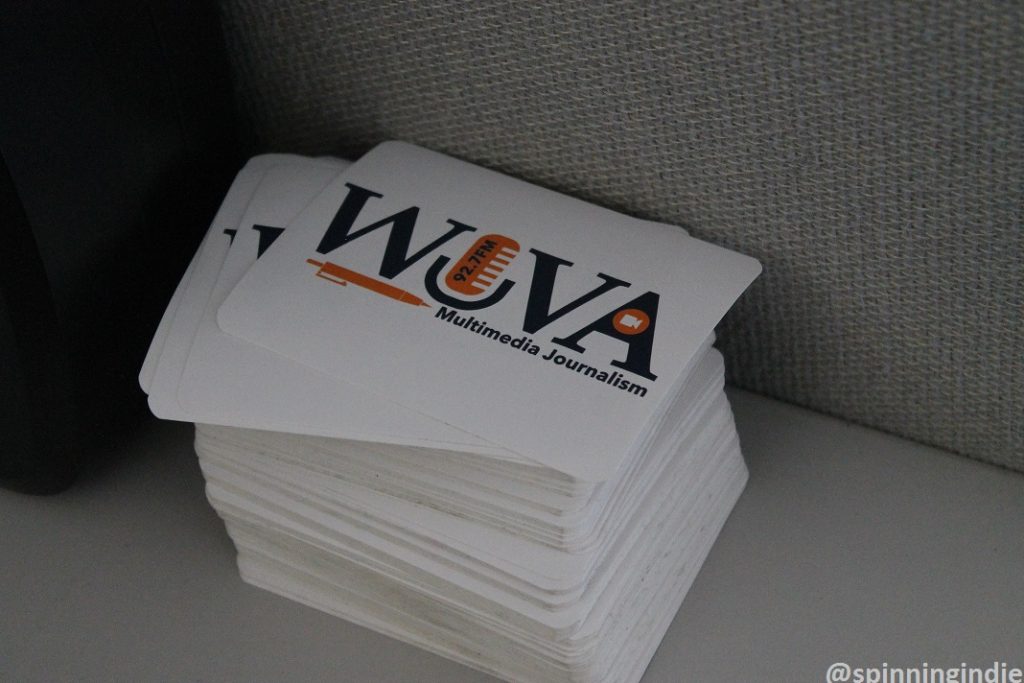While making plans for my trip to Charlottesville, Virginia for the College Radio: Then, Now and Next symposium, I was looking forward to seeing all three radio stations that have an affiliation with the University of Virginia: WTJU (see my tour report #129), WXTJ and WUVA. Each has a distinct personality. WTJU is a non-commercial FM station with mostly non-students hosts, WXTJ is a student-run, freeform low power FM station, and WUVA (pronounced woo-vuh) is a student-managed commercial FM station whose most recent format was country.
Just a few months before my visit, WUVA announced that it would be selling its FM license to a commercial radio group, so I was worried that I would miss my opportunity to see the station. Luckily, WUVA was still inhabiting its studio space, so I was able to get a quick tour on March 16. To me, this was even more notable, as I’ve only visited a handful of college radio stations with commercial licenses.
Celebrating its 70th anniversary this fall, WUVA (its call letters are a nod to the University of Virginia acronym: UVA) is the descendant of a campus-only AM carrier current radio station that launched in the fall of 1947. Its license is held by WUVA, Inc., which is managed by students, with oversight by students and alumni. The WUVA website explains,
In the post-war era, some universities were beginning to recognize broadcasting as an area for academic study. At these schools, many student-originated stations evolved into the ‘official’ college radio station, receiving sanction, funding and facilities from a supportive institution. However, at schools without a formal broadcasting or mass communications program — including the University of Virginia — these stations tended to remain financially and organizationally independent, continuing largely as extra-curricular student organizations.
Most operated as non-commercial, public radio stations, relying on small budgets consisting mainly of listener donations and meager community support. A handful, however, sought and secured permission from the Federal Communications Commission (FCC) to operate as commercial broadcasters, selling advertising to support themselves, and evolving into a unique breed within the species: student owned and operated — yet fully self-supporting — commercial broadcast operations.
After an unsuccessful attempt to obtain an AM license, WUVA added a cable FM transmission, which meant that listeners off campus could tune in. Eventually, WUVA was granted an FM license by the FCC and in 1979, WUVA started broadcasting over the commercial frequency of 92.7 FM. Since that time, the station has run a variety of commercial formats, including Album Rock, Top 40, Contemporary Hits, Urban Contemporary and Country. Although affiliated with the University of Virginia, WUVA is an independent organization (WUVA, Incorporated). According to its website,
WUVA, Incorporated has fostered independent, student-owned, student-operated electronic media at the University of Virginia since 1947. Although this organization has members who are University of Virginia students and may have University employees associated or engaged in its activities and affairs, the organization is not a part of or an agency of the University. It is a separate and independent organization which is responsible for and manages its own activities and affairs.”
In its early years, radio station WUVA had a large number of student participants, but those numbers dwindled in recent years, exacerbated by the station entering into a local marketing agreement with a commercial broadcasting group and leaving campus in the mid-1990s. The station eventually moved back on campus to Alumni Hall in 2010 and will be moving out shortly now that the WUVA-FM license sale is being finalized.
With such a strong history, I was curious about all of the vintage equipment, records and materials that WUVA must have accumulated after being in operation for 70 years. According to the WUVA website,
When it left Lefevre dorm in the mid 1990s, the station was forced to divest itself of virtually all its analog-era equipment, including an historic collection of vinyl-based music. Except for its transmitter atop Carter’s Mountain, up the ridgeline from Monticello, WUVA had been operating for nearly a decade by leasing other stations’ facilities and equipment. As a result, when WUVA moved into its new studios in the summer of 2003, it had to make major capital investments to re-equip itself with everything from desks and chairs to the latest digital broadcast gear.
Although I didn’t see vintage records or equipment when I toured WUVA, the walls of the space were covered with photos, press clippings, and other tidbits of station history that had been blown up and mounted onto oversized display boards. It was an amazing glimpse at 70 years of history.
The station space itself is located upstairs in the grand Alumni Hall at University of Virginia. There are several radio studios (some with fireplaces) as well as a room full of computers that has been used by the WUVA News operation, which has an emphasis on video, print and journalism. At the time of my visit, I didn’t see much in the way of radio activity and WUVA’s buyer (Saga Communications) was already broadcasting its own country music format (C-ville Country) over the FM signal via a local marketing agreement. It’s expected that when the sale is completed, the call letters will change to WCVL and WUVA Inc. will retain the WUVA branding for its other projects. Soon, WUVA Inc. will move out of the Alumni Hall space and the organization will devote itself entirely to WUVA News.
WUVA Inc.’s Marketing Director and President-Elect Matt Kesselman graciously toured me around the WUVA space and he and current WUVA, Inc. President Kailey Leinz (both are University of Virginia students) were kind enough to answer some follow-up questions over email. I was especially curious to learn more about student involvement at WUVA. Leinz shared her early experience with WUVA, telling me over email,
I knew coming into college that I was interested in and wanted to pursue broadcast journalism. At the time, the only real opportunity for that was doing radio broadcasting through WUVA, so I signed up immediately. At the time the station was still ‘92.7 Kiss FM’, a hip hop and r&b format. The music was all pre-programmed, but students could sign up for slots to do news, entertainment, or sports spots on the radio.”
During her first year at the station, Leinz said that there was still a decent amount of student participation, but that numbers declined every year. She explained that, “I would say the last time students were heavily involved was three years ago. I was a first year and did weekly news spots for the radio– there was still a pretty robust student involvement on the on-air side. It faded by my second year, two years ago, and by last year there was no student involvement whatsoever.” When I asked her why she thought there was a drop-off, she speculated, saying, “I think the system was just getting more and more disorganized as we struggled to keep the radio station afloat, and we were focusing a lot more on our online operation, so eventually radio was just left behind by students.”
From what I have seen it is very difficult for students to sustainably and effectively contribute/run a commercial radio station, you need a significant amount of professionals which then takes away from the student element of the college radio station. I also get the sense from talking to alumni that the modern student experience is very different than many years prior where current students are dragged across many activities all demanding their focus, which makes it difficult to keep students working consistently on something that requires absolute consistency. Again, this is a limited perspective.”
Looking to the future, both Leinz and Kesselman are optimistic about WUVA’s new direction. Kesselman told me, “…WUVA will mostly be focused on news & journalism, particularly modern forms of online journalism which includes a lot of video content.” When I asked about radio, he shared that he does hope that students will continue to do work with audio, saying, “There are no plans currently for an online radio station, I will be pushing my staff to create more audio content in the form of serial podcasts.”
Considering that WUVA has a long legacy, I wondered how folks had responded to news of its FM license sale. According to Kessleman, “Student-side the sale is very exciting, it will free up resources for students to do what they have been focused on for the last couple years. Alumni/board-side, the sale was harder for them but ultimately they understand why it makes sense and are motivated to make it work and make WUVA as successful as possible.”

